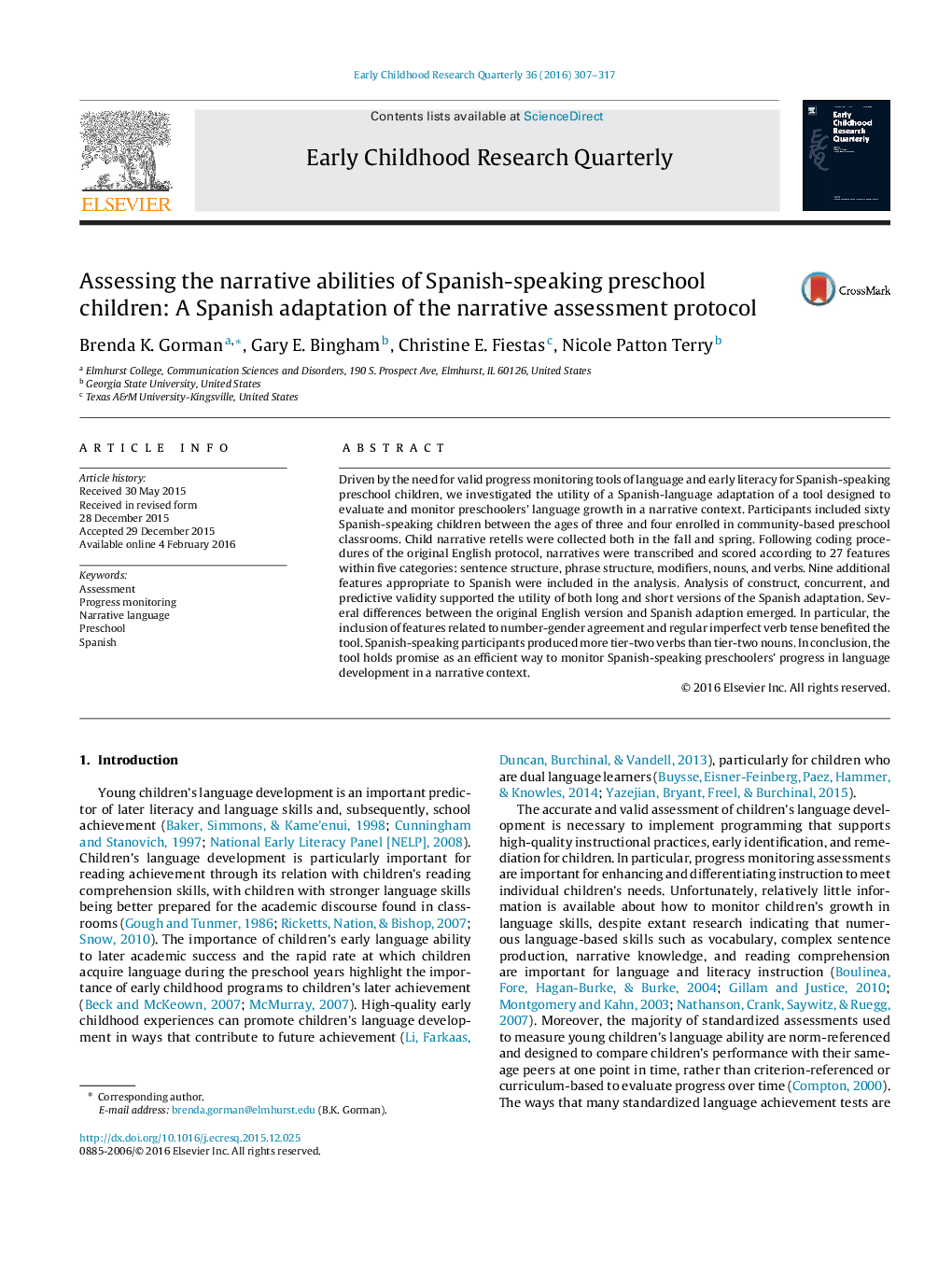| کد مقاله | کد نشریه | سال انتشار | مقاله انگلیسی | نسخه تمام متن |
|---|---|---|---|---|
| 353667 | 618936 | 2016 | 11 صفحه PDF | دانلود رایگان |
• We describe a Spanish adaptation of a narrative assessment tool.
• Preschool assessment tools are not easily translated from English into Spanish.
• Analysis of psychometric properties supported use of both long and short versions.
• Number-gender agreement and regular imperfect verb tense benefitted the tool.
• Spanish-speaking participants produced more tier-two verbs than tier-two nouns.
Driven by the need for valid progress monitoring tools of language and early literacy for Spanish-speaking preschool children, we investigated the utility of a Spanish-language adaptation of a tool designed to evaluate and monitor preschoolers’ language growth in a narrative context. Participants included sixty Spanish-speaking children between the ages of three and four enrolled in community-based preschool classrooms. Child narrative retells were collected both in the fall and spring. Following coding procedures of the original English protocol, narratives were transcribed and scored according to 27 features within five categories: sentence structure, phrase structure, modifiers, nouns, and verbs. Nine additional features appropriate to Spanish were included in the analysis. Analysis of construct, concurrent, and predictive validity supported the utility of both long and short versions of the Spanish adaptation. Several differences between the original English version and Spanish adaption emerged. In particular, the inclusion of features related to number-gender agreement and regular imperfect verb tense benefited the tool. Spanish-speaking participants produced more tier-two verbs than tier-two nouns. In conclusion, the tool holds promise as an efficient way to monitor Spanish-speaking preschoolers’ progress in language development in a narrative context.
Journal: Early Childhood Research Quarterly - Volume 36, 3rd Quarter 2016, Pages 307–317
